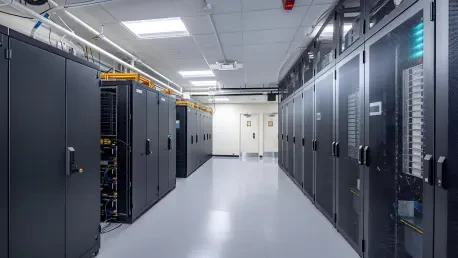Christopher Hailstone’s extensive background in energy management and renewable energy makes him an invaluable source of insight into the complexities of grid reliability and security. In this interview, we delve into the ongoing discussions around colocating data centers at power plants, focusing on the perspectives of PJM and major utilities, as well as the implications of current regulatory proceedings.
What are the concerns regarding colocating data centers at power plants as expressed by PJM and major utilities?
The main concern centers around the safety and reliability of the grid. Transmission owners view large loads, like those from data centers, as potential risks to grid stability. They believe that integrating such loads without resolving key technical and operational questions could lead to operational challenges. This is why they’re advocating for existing PJM Tariff rules to remain unchanged until these issues are adequately addressed.
Why are PJM and other organizations urging FERC to dismiss the call for settlement talks?
PJM and its transmission owners argue that additional settlement talks would divert focus from the existing rules, which they see as sufficient for current needs. They believe that negotiations could open the door to speculative rule changes, delaying potential advancements. Thus, they are pushing for the FERC to continue with its guidance without any pauses, emphasizing the need for progress under the existing framework.
Who supports the call for a pause in deliberations and why?
The Data Center Coalition supports the pause, primarily to explore settlement discussions that could lead to more favorable conditions for colocating data centers. Their motivation is to ensure that the unique needs of data-heavy industries are considered in crafting any future regulations, something that might not happen if the current pace of proceedings continues.
Why might FERC be unlikely to approve the request for settlement discussions according to analysts?
Analysts like those from Capstone suggest that FERC is likely to resist delaying guidance because they don’t foresee the settlement talks bringing clarity to complex regulatory issues in the short term. The consensus seems to be that meaningful changes requiring concessions are unlikely to emerge from negotiations, which makes pausing ongoing efforts less appealing to the Commission.
What implications could FERC’s review and decisions have on co-located load in the power markets?
FERC’s decisions could establish significant precedents for how colocated loads are managed, potentially impacting future arrangements across the industry. As data centers continue to proliferate, setting clear and stable guidelines will be crucial. The surge in data center development underscores the urgent need for clear regulatory frameworks to accommodate these new demands.
How do companies like Constellation, Vistra, and Public Service Enterprise Group view potential data center deals?
Constellation and Vistra are optimistic, seeing data center deals as aligned with future colocation decisions they’ll expect from FERC by year-end. They’re actively pursuing long-term deals and adapting to shifts in power purchase agreements. However, PSEG in New Jersey is more hesitant due to economic concerns, notably an affordability crisis highlighted by stakeholders, which affects their eagerness to engage in these deals.
What economic considerations are affecting the decisions of companies regarding data center developments?
Economic factors are significant, with competitive pricing on new power purchase agreements playing a crucial role. Companies like Constellation are observing changes in consumer preferences, notably moving toward front-of-the-meter solutions. Additionally, overarching economic issues, such as affordability in regions like New Jersey, heavily influence company decisions around expanding into data center partnerships.
Do you have any advice for our readers?
For those interested or invested in the energy sector, it’s crucial to stay informed about regulatory changes, especially as the industry grapples with integrating new technologies and meeting rising energy demands. Understanding the interplay between economic forces and policy shifts can provide strategic advantages in anticipating and adapting to future market conditions.









